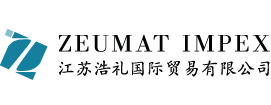The cross-border supply chain system is becoming more and more complete; buying a foreign product is just like buying from a local shop. Today, there are more than 100 integrated bonded warehouses across China, with most cross-border product orders arriving the next day to consumers.
Thanks to the development of bonded warehouses in recent years, the product reaches customers more quickly.
Bonded warehouses are warehouses authorised by customs for the storage of imported goods and will not be subject to customs laws and import control regulations.
Imported and stored goods may be modified, classified, sampled, mixed and reprocessed within the warehouse under customs authorisation and control. These goods will be duty-free if re-exported. And if they are sold in China, through cross-border e-commerce, they do not have to pay duty on the goods.
Since the term “cross-border e-commerce” was first introduced in the “Government Work Report 2014”, a decade has passed. In 2023, the size of China’s import cross-border e-commerce market was 551.77 billion yuan, grew by 3.9% compared to 2022 figures. As of today, cross-border e-commerce accounts for 5.7% of China’s goods imports and exports, compared to 1% in 2015.
Gao Jiang, Gao Jiang, Research Assistant at the Institute of World Economy, Shanghai Academy of Social Sciences, said that the constant changes in cross-border e-commerce policies are to adapt to the needs of the market and at the same time, encourage the development of the cross-border e-commerce industry.
As China opens up more to the outside world, the cross-border demand of domestic consumers will diversify. At a new starting point, in the next decade, cross-border e-commerce must continue to seek new changes to find new growth points.
Written by Wenyang Zhong
Source: Knews

 21 de June de 2024 -
21 de June de 2024 - 

